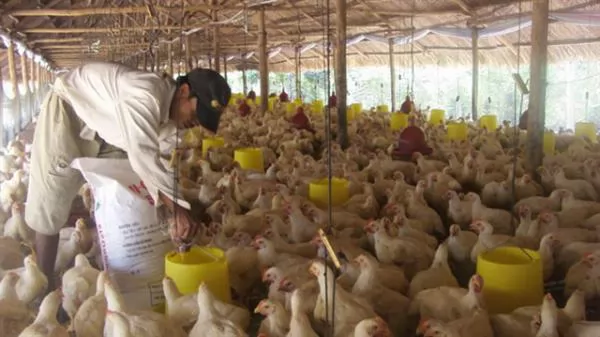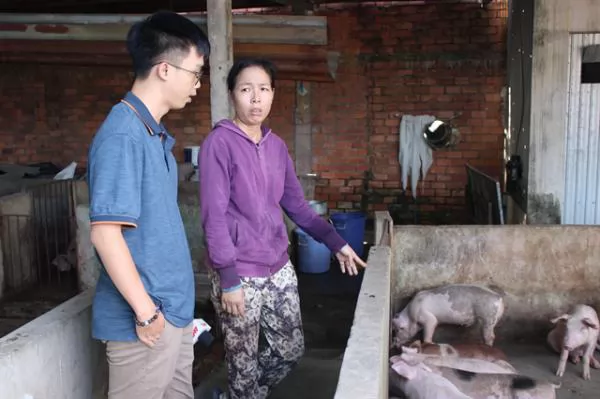Poultry breeders suffer losses due to oversupply

Breeders are suffering losses as the overrsupply of poultry has led to low selling prices. Photo from nld.com.vn
ĐỒNG NAI — The oversupply of poultry has led to high costs and low selling prices, causing losses for breeders nationwide, especially in Đồng Nai Province, the leading area for battery chicken production.
Nguyễn Kim Đoán, vice chairman of Đồng Nai Livestock Association, said that breeders had mistakenly thought that consumers would pay more for poultry because of the outbreak of African Swine Fever (ASF) among pigs.
In fact, the number of customers buying poultry has been much lower than chicken sales.
Đỗ Văn Thông from the province’s Long Khánh City in the past raised 40,000 battery chickens, but he doubled the quantity after the outbreak of ASF.
Thông sold a kilo of live chicken for only VNĐ14,000 (US$0.6) per kg but breeding costs were up to VNĐ26,000 ($1.1). After deducting expenses, he lost nearly VNĐ1 billion ($43,100).
Đoán said the current number of chickens and ducks in Đồng Nai is 26 million, an increase of 4 million. For every 1,000 battery chickens sold, a breeder suffers a loss of VNĐ15-20 million ($646-862 million).
According to the Việt Nam Poultry Association, oversupply is also caused by the way the General Statistics Office counts chicken breeding rotations. The office’s breeding rotation is only 1.5 flocks per year.
However, the process to raise battery chickens often lasts between 42-60 days, so the rotation is up to 3-6 flocks per year.
The association estimated that the country has 317 million battery chickens and yearly productivity of up to 1.2 billion. — VNS
Maybe you are interested

Cocoa prices tumble as African crop fears ease
Hedge funds cut bullish bets as seasonal rains improve production outlook in Ghana

HCM City to switch from pork production to pig breeding
HCM CITY — HCM City plans to move its pig farming industry away from breeding for pork and increase the number of pigs raised for breeding purposes in the next five years.

Vietnam taps into growing Australian demand for shrimp
Amid tariff risks and growing trade barriers in the U.S. market, Australia is emerging as a promising destination to sustain the growth momentum of Vietnam's shrimp exports.





